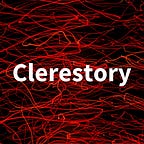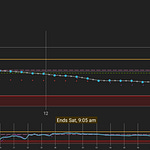I’m Bryan Kam. I endeavour daily to make philosophy accessible and relevant. To that end I write this newsletter and host a podcast called Clerestory. I’m also writing a book called Neither/Nor and I’m a founding member of Liminal Learning. In London, I host a book club, a writing group, and other events. My work looks at how conceptual abstraction relates to embodied life, and how to use this understanding to transform experience.
A Conversation with Alex Gheorghiu
Bryan Kam in conversation with Alexander V. Gheorghiu, assistant professor and a New Frontiers Fellow in the School of Electronics and Computer Science at the University of Southampton.
As you’ll hear in this podcast, my meeting with Alex was random and fortuitous. In this podcast we discuss whether and how mathematics and logic relate to reality, why Buddhist thought challenges Western categories, and what Gödel’s incompleteness theorem might mean for how we understand the world.
From realism to anti-realism
Alex traces his intellectual development from teenage mathematical realism—the belief that mathematics describes the fundamental structure of reality—to his current anti-realist position. Through studying algebra and analysis during his degree, he came to the view that these mathematical tools are cultural constructs rather than discoveries about an objective reality “A model is just a model in the way that a map is never the land itself.”
When Logic Meets Buddhism
Alex is also a Zen practitioner. We explored the famous Zen koan of Master Joshu, to the question of whether a dog has Buddha-nature. He responds “mu”—which neither affirms it nor denies it, but rather rejects the question. This exemplifies a philosophical move that transcends binary thinking, similar to how the Daodejing presents the Dao as preceding both unity and duality. We discuss how Chinese philosophy, lacking the Indo-European grammatical structures that equate existence and predication, developed fundamentally different approaches to how categories work.
Dummett, Meaning, and the Problem of Vixens
Through Michael Dummett’s anti-realist philosophy, we explore how meaning emerges from use rather than correspondence to reality. This challenges millennia of Western philosophical assumptions about categories and definitions. We get into Alex’s example of “Tammy is a vixen.”
From Parmenides to Process Philosophy
The ancient tension between Parmenides (static being) and Heraclitus (dynamic becoming, which I’ve written about here) continues to shape philosophy today. We examine how Plato attempted to reconcile these positions through his theory of forms, and why this synthesis may have taken Western philosophy down a particular path—one that privileges nouns over verbs, objects over processes, and abstract categories over lived experience.
The Unreasonable Effectiveness Question
Eugene Wigner’s famous question—why mathematics works so unusually well in describing nature—dissolves when viewed through an anti-realist lens. If mathematics is a human tool rather than a discovery of reality’s structure, its effectiveness becomes less mysterious and more a reflection of how we’ve shaped our tools to solve our problems.
Incompleteness and black holes
Alex shares his vision for bringing Gödel’s incompleteness theorem into public consciousness the way physics has done with black holes. Having just won the 2025 Graham Hoare Prize for his essay, he argues that this “small technical result” has profound implications for how we understand the limits of formal systems and human knowledge itself.
Key Themes
Mathematical anti-realism: Mathematics as human construct versus discovered truth
Cross-cultural philosophy: How grammatical structures shape metaphysical assumptions
The problem of universals: From medieval debates to modern logic
Meaning as use: The inferentialist account of language and logic
Process vs. object ontology: Why “Why is there something rather than nothing?” might be the wrong question
Buddhist logic: The significance of “mu” and neither/nor thinking
Referenced Thinkers & Concepts
Michael Dummett’s The Logical Basis of Metaphysics
Robert Brandom’s inferentialism
Wittgenstein’s “meaning as use”
The Zen koan of Joshu’s dog
Kant’s phenomena/noumena distinction
Eugene Wigner on mathematics’ “unreasonable effectiveness”
Heraclitus vs. Parmenides on being and becoming
Related podcast
This podcast with Alex pairs exceptionally well with another I did the following week, with Brook Ziporyn:
About the Participants
Alex is an assistant professor at the University of Southampton and honorary fellow at University College London, working in logic with interests spanning philosophy of mathematics, theories of language, and the relationships between reasoning and reality. He’s currently developing a mathematical account of Dummett’s philosophy and working to make logic and mathematics accessible to wider audiences.
Bryan Kam hosts the Clerestory podcast and is writing Neither/Nor, exploring how conceptual and experiential ways of knowing can inform both individual flourishing and our approach to philosophical problems.

Recorded at Drake & Morgan, London, where philosophical work happens with “consistently low” productivity but high philosophical engagement.
If you’d like to consider supporting my philosophical work financially, you can do so either here on Substack, or on Patreon.
Bryan










